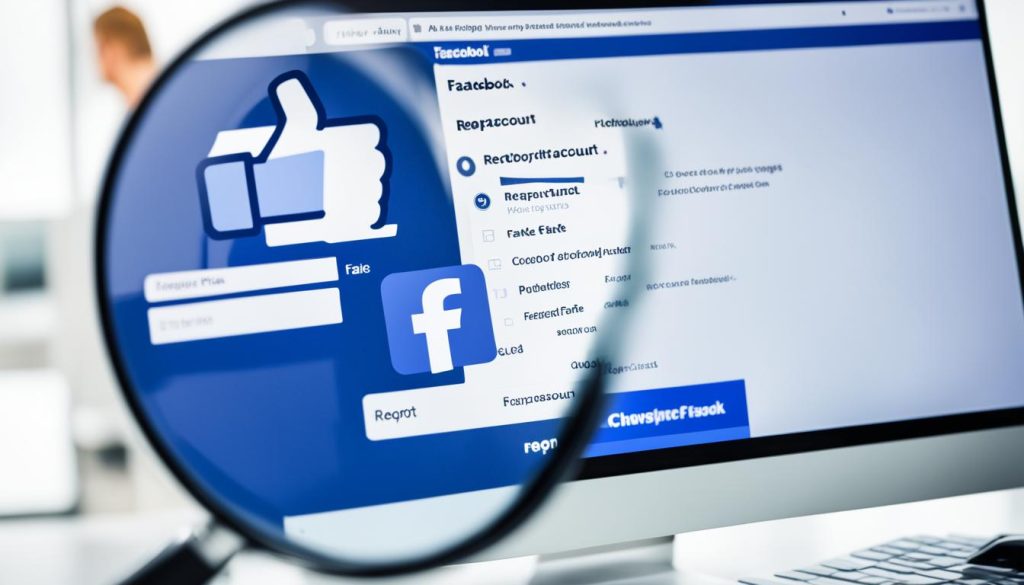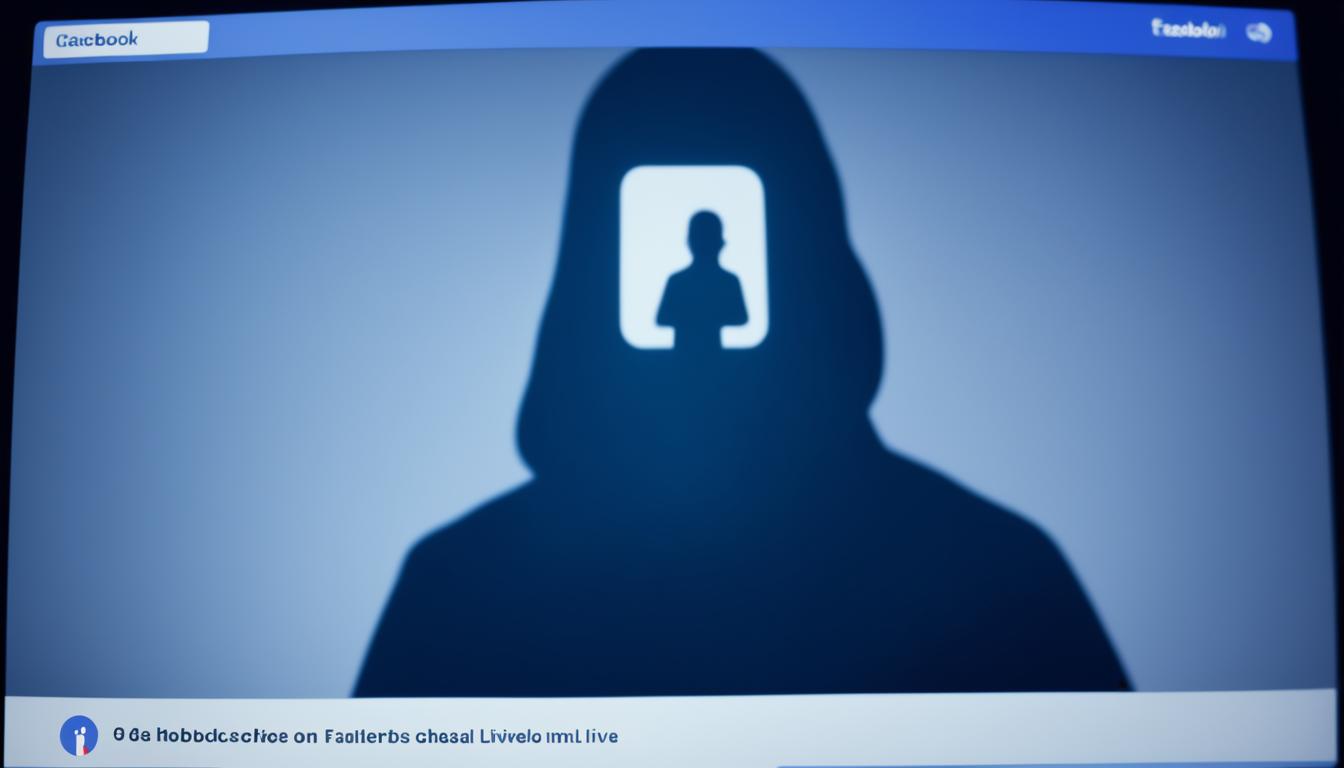If you discover that your Facebook account has been cloned, it’s important to take immediate action to reclaim your identity and protect your friends and network. By following the right steps, you can report the cloned account and mitigate the potential harm caused by the scam. In this article, I will guide you through the necessary actions to take if your Facebook account has been cloned.
Key Takeaways:
- If your Facebook account has been cloned, act quickly to report and reclaim your identity.
- Recognize the signs of a cloned Facebook account to protect yourself and others from falling victim to the scam.
- Confirm whether your account was cloned or hacked by checking your recent logins.
- Report the cloned account to Facebook support and encourage your friends to do the same.
- Take steps to recover your account, such as changing your password and enabling two-factor authentication.
Recognizing a Cloned Facebook Account
A cloned Facebook account is a replica of your profile created by someone who has accessed your photos and information. The purpose of cloning is often to deceive your friends and network. Scammers may use the cloned account to send friend requests, solicit money, or spread malicious content. It’s important to be able to recognize the signs of a cloned account to protect yourself and others from falling victim to the scam.
Cloning can be a serious threat to your online security and personal privacy. By familiarizing yourself with the following indicators, you can stay one step ahead:
- Inconsistencies: Pay attention to profile information, such as recent activities, work history, or education, that may differ from what you have shared on your genuine account.
- Duplicate Friend Requests: If you receive a friend request from someone you’re already connected with, it could be a red flag. Contact your friend outside of Facebook to confirm the legitimacy of the request.
- Unusual Messages: Be cautious of messages, especially soliciting money or promoting suspicious offers, sent from your own account or from someone claiming to be you. Cloned accounts often engage in these types of scams.
- Unfamiliar Posts or Comments: Check for content appearing on your cloned account that you did not publish or endorse. Be alert to any unusual or inappropriate activity.
- New or Altered Photos: Look out for manipulated or edited photos on the cloned account, as scammers may attempt to use your images in misleading ways.
Remember, fraudsters can be cunning, so it’s important to remain vigilant. If something feels off or suspicious, trust your instincts and take the appropriate steps to secure your account and report the cloned profile.
Stay tuned for Section 3: Confirming if Your Account was Hacked
Confirming if Your Account was Hacked
It’s crucial to determine whether your Facebook account was actually hacked or if it has merely been cloned. To confirm this, you can check your recent logins and verify that they were all from recognized devices and locations. If all logins are familiar, it is likely that your account was cloned rather than hacked. However, if you notice unfamiliar logins, it is possible that your account has been compromised, and additional steps should be taken to secure it.
If you suspect that your account has been hacked, it’s important to act quickly to protect your personal information and prevent further damage. Here are some steps you can take:
- Change your password immediately. Choose a strong password that includes a combination of uppercase and lowercase letters, numbers, and special characters.
- Enable two-factor authentication for an added layer of security. This will require a verification code in addition to your password when logging in.
- Review your account settings and make sure there are no unfamiliar apps or devices linked to your account. Remove any that you do not recognize.
- Be cautious with third-party apps and quizzes that request access to your Facebook account. Verify their legitimacy before granting permission.
- Monitor your account activity regularly and report any suspicious behavior to Facebook.
By taking these steps, you can confirm whether your account was hacked or cloned and take appropriate measures to ensure its security. Remember to report any cloned accounts to Facebook to protect yourself and others from falling victim to scams.
Reporting a Cloned Facebook Account
If you discover that your Facebook account has been cloned, it’s crucial to take immediate action and report the account to protect yourself and others from falling victim to the scam. To effectively report a cloned Facebook account, you can follow these steps:
- Encourage your friends to report the account as well. This will increase the chances of Facebook taking swift action against the cloned account.
- Visit the friend request screen of the cloned account by clicking on the three dots.
- Choose the “Report [Friend Name]” option from the menu.
- Select the reason for the report as “Pretending to be someone” to notify Facebook about the cloned nature of the account.
- Provide the name of the person that the account is impersonating. This information will assist Facebook in their investigation.
“By reporting the cloned account, you are not only protecting yourself but also helping to safeguard others from falling victim to this scam.”
After reporting the cloned account, Facebook will provide confirmation and follow up with your friend. Remember, reporting the account is an important step in reclaiming your identity and preventing further harm.
Take action now and report any cloned Facebook accounts you come across to keep yourself and your network safe.

Steps to Recover a Cloned Facebook Account
If your Facebook account has been cloned, it’s crucial to take immediate action to regain control and protect your profile. Follow these steps to recover your cloned Facebook account:
- Report the Cloned Account: Contact Facebook support immediately to report the cloned account. Provide them with all the necessary details and evidence to support your claim. This will initiate the investigation process and increase the chances of reclaiming your account.
- Notify Your Friends: Inform your friends about the cloned account by posting on your own Facebook page. Advise them not to accept any friend requests or engage with the cloned account. By spreading awareness, you can prevent others from falling prey to the scam.
- Secure Your Account: Take the necessary steps to secure your Facebook account. Start by changing your password to a strong and unique one. Enable two-factor authentication to add an extra layer of security. Review the list of apps connected to your account and remove any unfamiliar or suspicious ones.
By following these steps, you are actively working towards recovering your cloned Facebook account and safeguarding your online identity. Remember to stay vigilant and regularly monitor your account for any suspicious activity.

“Recovering a cloned Facebook account requires prompt action and communication with Facebook support. By reporting the cloned account, notifying friends, and securing your account, you can minimize the damage caused by this scam.””
Preventing Facebook Account Cloning
While it may not be possible to completely prevent Facebook account cloning, there are steps you can take to minimize the risk and protect yourself. Here are some essential measures to consider:
- Hide your friends list: One important step is to keep your friends list private from outsiders. Scammers often use this information to defraud money or impersonate you. By restricting access to your friends list, you can reduce the chances of being targeted by account cloning scams.
- Use a virtual private network (VPN): Enhance your online security and protect your identity by using a VPN. A VPN encrypts your internet connection, making it harder for anyone to eavesdrop or intercept your data. This added layer of protection can help safeguard your Facebook account from cloning attempts.
- Practice good cyber hygiene: Protect your Facebook account by practicing good cyber hygiene habits. Use unique and strong passwords, avoid clicking on suspicious links, and regularly update your devices and browsers. These simple actions can go a long way in preventing unauthorized access to your account.
By following these preventative measures, you can reduce the likelihood of falling victim to Facebook account cloning scams and maintain better control over your online presence.
Take Charge of Your Online Security
“Prevention is better than cure.” – Unknown
Online security is a shared responsibility. By implementing these preventative measures, you are taking proactive steps to protect yourself and your Facebook account. Remember to stay vigilant, keep your personal information secure, and report any suspicious activity to Facebook immediately.
Additional Security Measures for Facebook
Protecting your Facebook account from cloning is essential, but there are other security measures you can take to further secure your profile. By implementing these practices, you can enhance the overall safety and prevent unauthorized access.
- Enable Unrecognized Login Notifications: Activate notifications for unrecognized logins on your Facebook account. This feature will alert you if there’s any suspicious activity, such as someone attempting to access your account from an unknown device or location.
- Set Up Two-Factor Authentication: Adding an extra layer of security to your account, two-factor authentication requires you to provide a second form of verification, such as a unique code sent to your phone, in addition to your password. This ensures that only you can access your Facebook account, even if someone else has your password.
- Review and Remove Unknown or Unnecessary Apps: Regularly check the apps that have access to your Facebook account. Remove any unknown or unnecessary applications, as they may pose a risk to your privacy and security.
By implementing these additional security measures, you can strengthen the protection of your Facebook account and minimize the chances of it being cloned or compromised.
Conclusion
Discovering that your Facebook account has been cloned can be a distressing experience. However, by taking the right steps, you can regain control and protect both yourself and others from falling victim to this scam. Reporting the cloned account, notifying your friends, and implementing additional security measures are all essential in reclaiming your identity and preventing further harm.
When you discover a cloned Facebook account, it is crucial to report it immediately. By reporting the account, you not only help protect yourself but also alert Facebook to the presence of a fraudulent profile. Furthermore, notifying your friends about the situation is important to prevent them from unknowingly accepting friend requests or engaging with the cloned account.
In addition to reporting and notifying, it is vital to enhance the security of your Facebook account. Changing your password regularly, enabling two-factor authentication, and reviewing and removing any unfamiliar apps can help secure your account from unauthorized access. By practicing good cyber hygiene and remaining vigilant, you can safeguard your online presence and reduce the risk of future account cloning incidents.
Remember, if you discover a cloned Facebook account, it is not only crucial to take immediate action but also to stay proactive. By following the appropriate steps and implementing additional security measures, you can navigate through the experience with confidence and protect yourself and others from the potential harm of having a cloned account.
FAQ
What should I do if my Facebook account has been cloned?
How can I recognize a cloned Facebook account?
How can I confirm if my Facebook account was hacked or cloned?
How do I report a cloned Facebook account?
What steps can I take to recover a cloned Facebook account?
How can I prevent Facebook account cloning?
What additional security measures can I implement on my Facebook account?
Conclusion
Hi there, I'm Jacqueline! Passionate about the ins and outs of Facebook, I created this blog to be your go-to resource for mastering ad campaigns, community engagement, and algorithm hacks. Looking to make your Facebook efforts truly 'Like'-worthy? You're in the right place. Let's elevate your social impact together!




